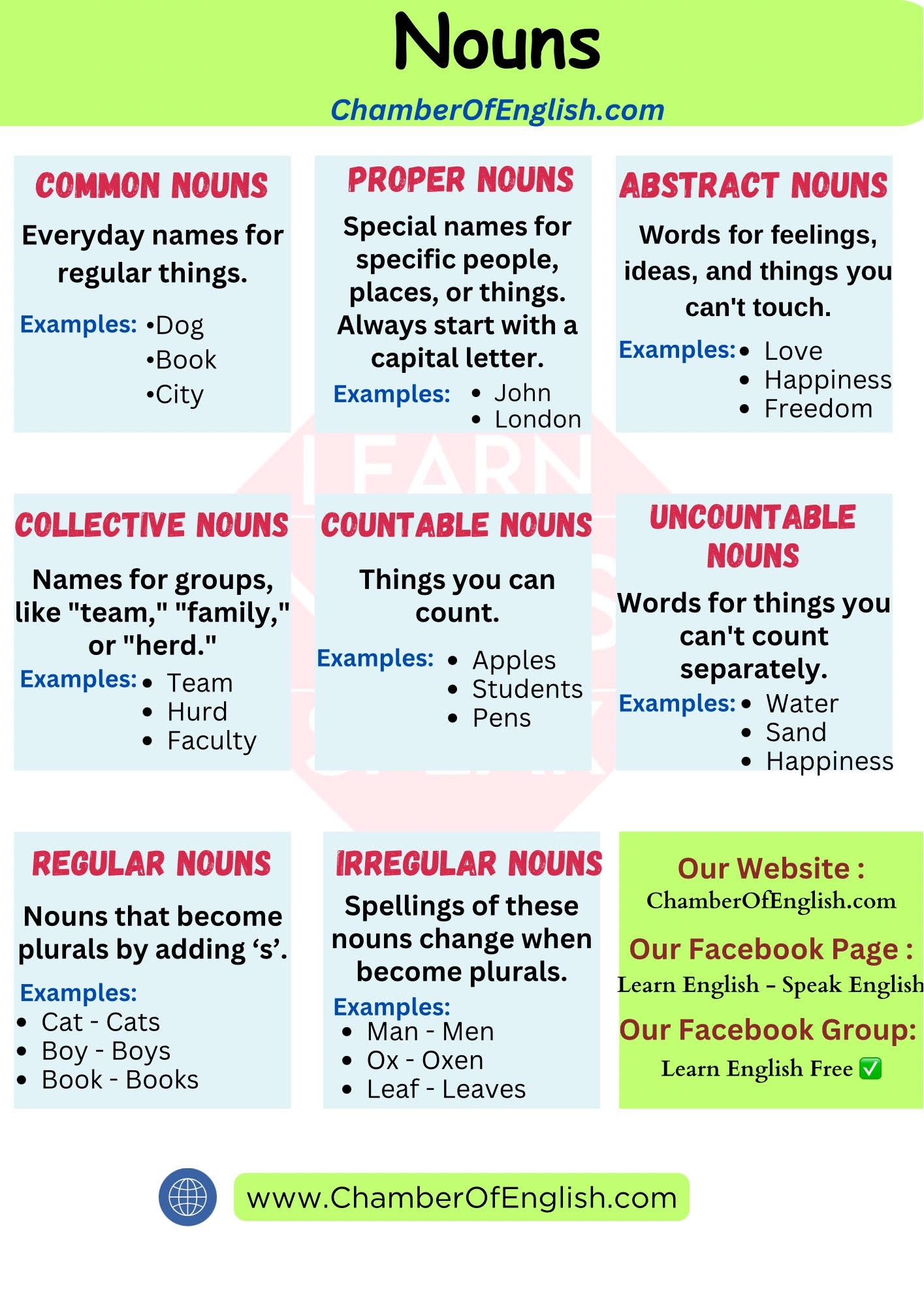Nouns are an essential part of speech that help us to identify people, places, things, and ideas. They come in various forms and serve different purposes in a sentence. By understanding the different types of nouns, you can enhance your writing and communication skills.
In this article, we will explore the various types of nouns and provide examples to help you grasp their usage and importance in the English language.
Different Types of Nouns
1. Common Nouns: Common nouns refer to general names for people, places, or things. They are not capitalized unless they begin a sentence. Examples include: teacher, city, and car.
2. Proper Nouns: Proper nouns are specific names of people, places, or things and are always capitalized. Examples include: Mary, London, and Coca-Cola.
3. Abstract Nouns: Abstract nouns represent ideas, emotions, or qualities that cannot be perceived by the senses. Examples include: love, happiness, and courage.
4. Collective Nouns: Collective nouns refer to groups of people or things. They can be singular or plural, depending on the context. Examples include: team, herd, and flock.
5. Compound Nouns: Compound nouns are formed by combining two or more words to create a single noun. Examples include: toothbrush, basketball, and bedroom.
By recognizing the different types of nouns and how they function in sentences, you can improve your writing skills and enhance your communication. Whether you are writing an essay, composing an email, or engaging in a conversation, using the appropriate nouns will help convey your message effectively.
Remember to pay attention to the details and nuances of each type of noun to ensure clarity and precision in your language. Practice using different types of nouns in your writing to become more proficient in expressing yourself accurately and eloquently.
In conclusion, nouns play a crucial role in language and communication. By understanding the various types of nouns and their functions, you can become a more effective and skilled writer. Keep expanding your vocabulary and honing your grammar skills to master the art of using nouns in your everyday communication.
